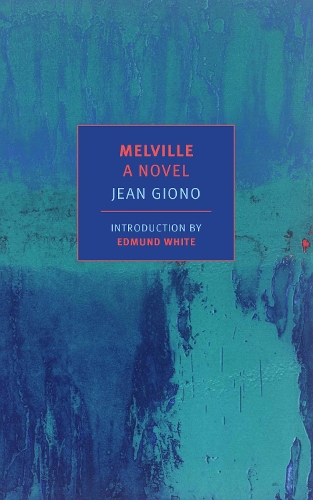
Melville: A Novel
(Paperback, Main)
Publishing Details
Melville: A Novel
By (Author) Edmund White
By (author) Jean Giono
By (author) Paul Eprile
New York Review Books
New York Review Books
15th September 2017
12th October 2017
Main
United States
Classifications
General
Fiction
843.912
Physical Properties
Paperback
200
Width 128mm, Height 198mm, Spine 9mm
150g
Description
Moby-Dick looms large in the world's imagination. But by the mid-1930s-eighty years after it first appeared in English, no one had yet translated Melville's great sea-novel into French. The Provencal novelist Jean Giono fell in love with the book. He inspired his friend Lucien Jacques to join him in the project of rendering Melville's stirring prose. After they finished, Gallimard, their publisher, persuaded Giono to write a preface. Giono had been unwilling at first to accept - the translation had taken a few years to complete, and he was eager to move on. Gallimard brought him around by encouraging him to introduce Melville's rich biography to the French public, who knew little or nothing about the American author. The result, issued as a separate volume in French and now as an NYRB Classic: an unparallelled intercultural creation, part preface, part biography, part philosophical rumination, part romance, part unfettered fantasy. Gallimard continues to classify it as "Un essai," a literary experiment. Melville: A Novel is an intimate homage from one great writer to another, across time and space, a true meeting of French and American minds. Paul Eprile's meticulous translation of this startling text brings the exchange full circle.
Reviews
"An intelligent and moving translation by Paul Eprile...Gionos book is, as Eprile maintains, 'A Novel,'a rich and haunting 'voyage imaginaire,' shedding light not just on its ostensible subject, but on its author, love and loss, and the process and calling of artistic creation...an extraordinary book which richly deserves this belated attention and fine translation. " Nicholas Hewitt, TLS
Agiddy fantasia on the life of Herman MelvilleIts a fetching little tale.Sam Sacks,The Wall Street Journal
"For Giono, literature and reality overlap the way that waves sweep over the shore, one ceaselessly refreshing the other and, in certain wondrous moments, giving it a glassy clearness. Ryu Spaeth,New Republic
"This lyrical novel reimagines Herman Melvilles life and adds a hauntingly atmospheric spin.This isnt your typical fictionalized life of a writerinstead, its an unexpected meditation on the convergence of two literary lives. Kirkus Reviews
"Giono illustrates how an authors artistic output enriches and illuminates his life, in ways that historical facts cannot provide...Giono expands Melvilles context, painting him as a transatlantic heir to Milton and Shakespeare. At the same time, he also expands Melvilles own influence, cementing his impact on French culture, which has been considerable. Adam Fales,Los Angeles Review of Books
Gionos writing possesses a vigor, a surprising texture, a contagious joy, a sureness of touch and design, an arresting originality, and that sort of unfeigned strangeness that always goes along with sincerity when it escapes from the ruts of convention.Andr Gide, unpublished letter, 1929
Melville is a powerful testament to the magic of words.Edmund White, The New York Review of Books
After reading Pour saluer Melville, which is a poets interpretation of a poeta pure invention, as Giono said in a letterI was literally beside myself. How often is it the foreigner who teaches us to appreciate our own authors!Henry Miller
Author Bio
Jean Giono (1895-1970) was born and lived most of his life in the town of Manosque, Alpes-de-Haute-Provence. He served in World War I and after the war war returned to his job and family in Manosque and became a vocal, lifelong pacifist. After the success of Hill, which won the Prix Brentano, he began to publish prolifically. During World War II Giono's outspoken pacifism led some to accuse him unjustly of collaboration with the Nazis; after France's liberation in 1944, he was imprisoned and held without charges. Despite being blacklisted after his release, Giono continued writing and was elected to the Academie Goncourt in 1954.Paul Eprile is a longtime publisher, as well as a poet and translator. Edmund White has written biographies of Jean Genet, Marcel Proust, and Arthur Rimbaud. He has also written several novels and teaches creative writing at Princeton.
